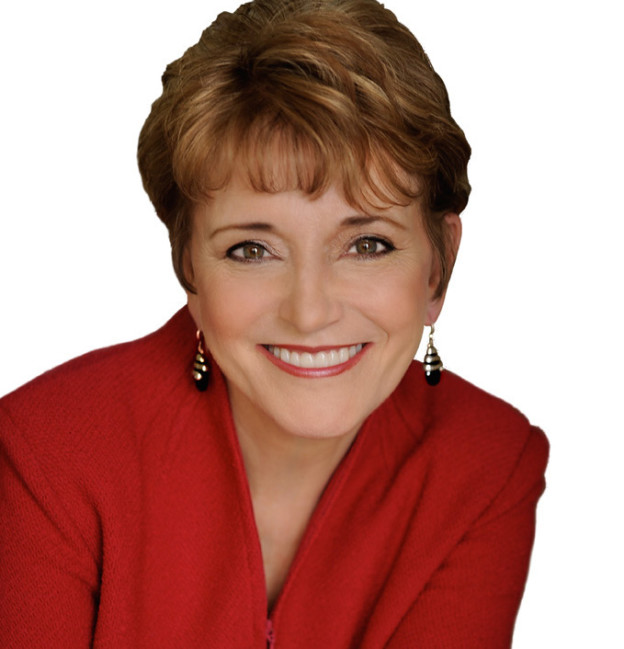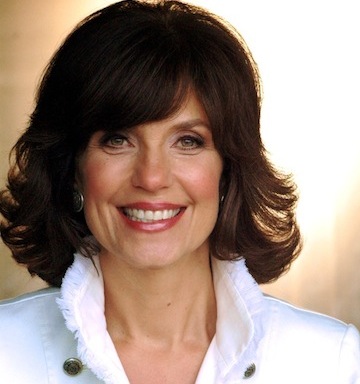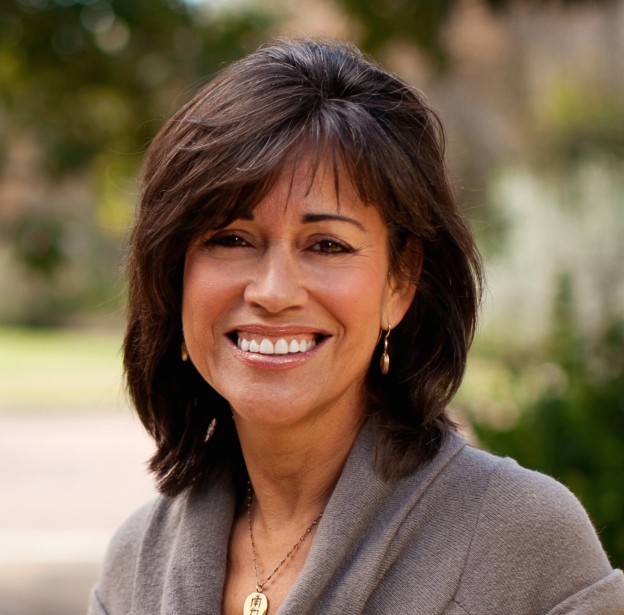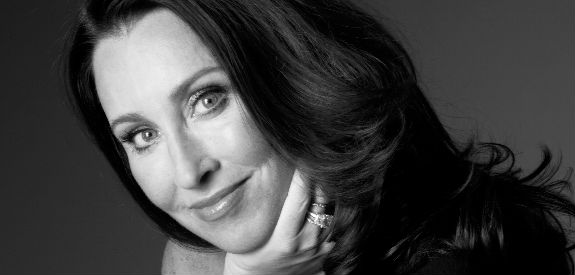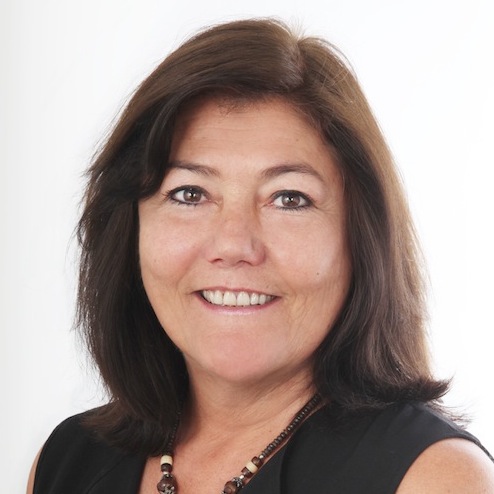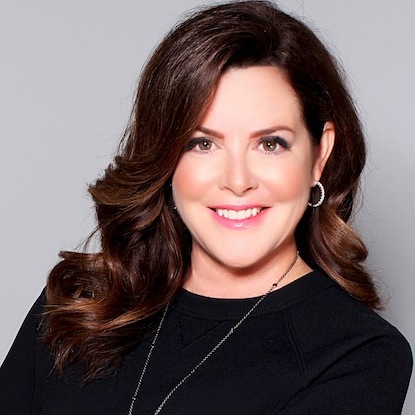There are many challenges as a woman growing a successful company and Mary Morrissey has great advice on how to handle them. In this installment of Interviews with Influential Women, we discuss the power of transformation.
Most people can barely imagine being on stage with the Dali Lama or working with people like Nelson Mandela—things you have done. Give us a description of what brought you to where you are today:
Early on, I didn’t know that every one of us has a choice to move from living an outside-in life to an inside-out life. I did not know we can actually become aware of our own thoughts, and we can shape those thoughts. We can notice whether our thoughts are expansive or contractive, in or out of harmony with what we really want, and by changing our inner world, our outer world will change. I had no idea this was possible. I just thought life happened to us, and I was, living a completely reactive-based life.
I got very sick and it actually opened a doorway. I remember thinking that until then, I had been living in a dark attic of myself, and I had finally found my way to the front door of self, and it was this Technicolor world of possibility that I was now able to open up to.
Stanley Adams once said, “Nothing sharpens a man’s senses like knowing he’s going to the gallows in the morning.” That was true for me.
My experience growing up was something people dream about. My mom and dad loved each other. I had one older sister. In high school I was class vice-president, on the drill team, had a lead in the junior play, and was homecoming princess. But in the spring of my junior year I got pregnant. When I told my mom and dad I was pregnant my mother wept for me—as if I had died.
We had a very hasty, 10-person wedding. A few weeks later, the high school principal called me to his office and asked me if the rumors he was hearing about me were true. I said, “Well, if the rumors are that I am pregnant, married and in that order, then yes, they’re true.” He put his head in his hands, and said, “Oh, my God, Mary. You have great academics. You have terrific honors, but you are not going to be able to fill out your term here for your senior year. It would be totally inappropriate for a pregnant girl to be with a normal girl. But we do have a place for people like you.”
The alternative school was not held during daylight hours, and it was across the river. I lived on the upper end of Portland and this was in an area I had not been allowed to drive after dark. It was where the pregnant girls and the delinquent boys go to high school. On top of being pregnant and kicked out of high school, the mothers of my three best friends got together and decided their daughters could no longer see me. I felt like I had a scarlet A on my chest.
In May I graduated from this alternative high school, and by July I was in an intensive care ward diagnosed with fatal kidney disease. One kidney was totally destroyed with nephritis, and the other kidney was 50% destroyed with active nephritis. In 1966, transplants and dialysis were not available. Kidney failure meant death.
The best scientists, MDs, and specialists all had the same prediction; if I could get the blood toxin levels, with their help, reduced enough to sustain a surgery to remove the right kidney, then maybe I would have six months to live. And that was my best shot.
I was terrified. My mother watched my 7-month-old son, while my husband worked during the day. The God of my upbringing was not a friendly place to go when you felt like you had really messed up so I thought I was being punished.
The night before the surgery to remove the right kidney, a woman walked in my room, identifying herself as a chaplain, offering prayer. She volunteered three nights a week always talking to and praying with people who were having the most serious surgeries the next day—I was at the top of her list.
This was long before we had a mind-body clinic at Harvard like we have today. She pulled her chair next to my bed, and she didn’t do anything like prayer. She talked to me, and she asked me if I would be willing to tell her what had been going on in my life for the last year or two.
I told her my story and at the end of it she looked at me compassionately and said, “Mary, everything is created twice.” I didn’t know what she was talking about. But she continued, “Everybody knows this. Almost no one knows the power of knowing it.” And then she said, “The bed you’re lying on, the nightgown you’re wearing, the sheet covering you, the wall, the ceiling, the floor, all the machinery you’re hooked up to, first it had to be a thought, before it could be a thing.” She said, “This is true about everything that you can see, taste, touch, smell, feel.
This woman I didn’t know affirmed my feelings saying, “I hear how much you love your little boy. I also hear how much you’ve hated yourself lately. You feel like you’ve shamed yourself, your school, and your family.”
Then she said, “Mary, you know that if you think embarrassing thoughts, your cheeks get red, and you know that if you think scary enough thoughts, your heart beats faster. So consider that if you think enough toxic thoughts about yourself, your body will get toxic. Your kidneys right now are dying under the weight of the toxicity that’s moving through your body.”
Then she asked me if I could imagine that in the infinite possibilities, there could be a possibility where, through prayer, I could have a complete healing and in the morning the doctors who come in to do the surgery would look at me and say, “You look better. We’re going to test you.” Then they would conclude, “You are completely cured, get up, go home. You’re fine.” She asked if I could believe that? And I told her the truth—no. I didn’t have one place in me that thought she was going to say words, and I was going to have a complete healing. I believed way more in my pain at that point than I believed in some woman who walked in my room.
So she said, “Okay. Well, if you can’t believe you could have a complete healing, could you believe it’s possible there is at least one possibility in the infinite possibilities, where, through prayer, at least we could scoop up everything toxic that’s in your body and put it in that one kidney. If thinking can make your cheeks red, thinking can pull all of that toxic dis-ease and put it in that kidney, and when they remove that right kidney, instead of getting worse, you get better. Could you believe it’s even possible?”
And, you know, at that moment I saw in her eyes that she believed it was possible, and I said, “I don’t know if it’s probable, but maybe it’s possible.” She said, “That’s all we need, one corner of your mind open as a possibility.” She told me to imagine right then pulling all of the toxins and putting them in the right kidney. She helped me visualize that kidney encapsulated and in the morning it was going to be removed. She reminded me my body knew how to be perfect before; it still knew how to be perfect.
Next she asked, me if I did live what would I do with my life? And my first thought was I wanted to raise my little boy. I wanted to see him go to school. I wanted to see him graduate from high school. I wanted to be there when he got married. “And what else she?” prodded. “What would you do with your own creative life?” I told her I would become a teacher. She had me imagine becoming a teacher, watching my son graduate, everything including them removing my kidney with all the toxins.
She went on to tell me, “Your mind is very much like a rubber band. Right after the surgery, your mind is going to be distracted with the pain that comes with having a surgery. But as soon as you start to feel a little better, your mind’s going to want to go back and think those same painful, self-loathing thoughts about yourself. So here’s what I want you to do. When you notice that you are thinking hateful thoughts about yourself, say, ‘No, that left with the kidney’, and then immediately turn your attention to three imaginings. Imagine that you’re walking into an elementary school, and you feel in your right hand a little boy’s hand. He’s five years old. It’s your little boy. And you’re walking into this elementary school, and there’s a teacher standing at the door waiting for your son to enter kindergarten, and your son is happy, and the teacher’s happy, and your son steps into a classroom, and you’re there, and he’s walking into kindergarten. And then hear the click, click, click of your heels as you walk down the hallway, and you turn left, and there is your classroom, and you are a teacher.
“Then fast forward in your mind to, you’re in a great big stadium, and you look down, seeing caps and gowns, and you hear your son’s name called over the microphone. You see him walk across the stage, shake the hand of the presenting, and you are feeling such pride, such joy, such happiness in your part in raising your son to this moment and this accomplishment in life. And your teaching career is growing.
“Then fast forward in your mind to the third image, and you’re sitting in the front row of a wedding. Your son – he and the love of his life are standing in front of you, and they’re speaking their vows one to another, and you are just full of happiness and joy for your son’s life and what he’s become as a man and your part in helping raise him, and your teaching career is flourishing.”
“And then repeat that over and over,” she said, “You may have to do it 10 times a day; however many times doesn’t matter. Keep yourself focused on the good that is to come.”
She did not say how I was going to get a babysitter for him, where I would get the money to go to college. We did not talk about the how. It was just three strong images that were emotionally charged with desire. It was a rinse and repeat—imaging this image—over and over and over again.
I did what she told me to do. And within a couple of weeks the doctors told me, “Your numbers are stabilizing, we’re going to let you go home we don’t know if it’s a week or two or three, but you look like you might get a little bit more time.”
I went home in an ambulance. Slowly my numbers stabilized and my remaining kidney began to work better. Four months later, I was with the surgeon, GP, and the urologist, and they’re all scratching their heads. They say, “We have no medical explanation, no science, for why your one kidney that was 50% destroyed with active nephritis should be functioning perfectly. We’ve never seen this happen. All we can write on your medical report is ‘medical anomaly.’ But whatever you’re doing, keep doing it.”
This lesson that I had control over my thoughts through visualizing what I wanted was the start of everything I now do.
In addition to what you learned then, what are the most important things you do that contribute to your success now:
I reluctantly attended a lecture that my husband wanted to attend when I was 22. I was on my way to the life that I had been imagining, about to get my undergraduate degree and had a second son. During his lecture the man said, “Nothing is bad unless you think it’s bad.” I thought, “This is just not true. There is bad stuff in this world. Car wrecks are bad. War is bad. Murder’s bad. Come on, there’s bad stuff in this world.”
Then he suggested we experiment with it so we actually have more power to change the things we do not like. He suggested, “The next time something happens that you are tempted immediately to label bad, hit your internal pause button and wait three days. During those three days, turn the volume up on your curiosity and cause yourself to think about any possible good that can come from that situation. If after three days, you cannot find any possible good, then go ahead and get upset about it. By waiting three days, you have not surrendered your right to get upset, you’ve just delayed it, and you’ve gone to a different level of your ability to be creative no matter what the situation is.”
I left that lecture feeling I did not know what that guy was talking about. I was not impressed. I was not impressed, until two days later, when my children’s father came home looking ashen. He was working full-time and I was going to school full-time. When I asked what happened he said, “There was a massive layoff at work today. A hundred of us lost our jobs. I have no job.” I immediately reacted with, “Oh, my gosh, what are we going to do? We won’t be able to pay our bills. I won’t be able to go school, and oh…”
Then I remembered, that guy on Sunday said nothing is bad unless we think it’s bad. But this seemed so bad. I tried to remember what he said to do. You hit your internal pause button. Where is that? How do I find it? I didn’t even know I had an internal pause button. What are we supposed to do? We’re supposed to wait three days. OK, it’s Tuesday at 5:00 pm—Wednesday, Thursday, Friday at 5:00. Wait three days. During this time, turn up the volume on our – what was it – curiosity, and see what possible good we could find in this, and if we can’t find any good, then get upset Friday at 5:00.
We immediately sat down and got out a piece of paper. I said, “I can’t…I don’t know. I don’t know if there’s any good in this.” But my husband said, “Well, I drive 90 minutes to work and back.” “What if I found a job closer to home?” And I thought, “Oh, well, that would be good.” So we wrote that down. “What if I made more money?” I thought out loud, “Could you do that?” He said, “What if I did?” “Well, write that down. Of course that would be good.” And pretty soon we had, six possible goods that could happen.
When we were thinking on the frequency that “This is so horrible, this is bad, we’re not going to be able to pay our bills, I’m going to have to quit school,” the only ideas that came to us are the ones of struggle.
But when we thought, “Well, what if I drove closer to home,” ideas of places he might apply to that were closer to home occurred to us. Possibilities became available… maybe more money, maybe a job he liked better, maybe…you know, maybe, maybe.
The next day, he went out to submit applications. I felt panicked, of course – I had so many strong patterns of just going immediately to that panic, it had me on the throat over and over again, but I’d just say, “Nope. Friday at 5:00, Friday at 5:00.” And I began to experience my own ability to have some command over my experience while in a circumstance that I didn’t like, instead of it having control over me.
On Thursday afternoon, he came home bright-eyed with his energy’s huge. I asked what happened and he had found a perfect job—shorter hours, more money, closer to home. He could ride his bike to work, which he loved doing. And I remember waking up the next morning thinking that was Friday, and I had a scheduled appointment with panic at 5 o’clock that night that I didn’t need. I could cancel that appointment. And I hadn’t suffered waiting for conditions to change until I could feel better.
We had hit the pause button on our panic, become curious about what good could come from it, and then he took action to open doors to the good ideas we had come up with. Taking action is a critical element of this working to your benefit.
At that point I had gone through a doorway of self, and thought, “Well, whatever this power is, I want to know more about it,” and I began to be like a thirsty sponge for everything I could find in this field. I read everything I could find about it, and ended up going to seminary school.
I wanted to teach people about transformation. I didn’t want to teach them the content of things they’d already learned that kept us enslaved to conditions. I wanted to teach transformation, and I’ve been studying this and teaching this ever since. My teaching career transformed and I have been on this path ever since.
What I teach is that the real game is to stay awake more often and fall asleep less often, and when you do fall asleep, instead of being a dead sleeper, you’ll be a light sleeper so that just a little feather on your cheek will wake you up. “Wait a minute. I’ve gotten on a train of thought that’s taking me to a destination I don’t want to end up at.”
Every one of us is a powerful manifestor. It’s not like, “Oh, I want to be a powerful manifestor”; we are powerful manifestors. We’re directing the infinite through the patterns of thinking that are driven with impact by the emotion. Andrew Carnegie said, “Any thought that is highly revered or highly feared begins immediately to clothe itself in the most convenient substance possible.” Anything you are highly afraid of or something you want deeply—like the idea of walking my little boy into school and going into a classroom—find their way into reality, if you think them often enough.
Have you had any challenges as a woman growing a successful company, and what you did to handle them.
Well, I founded a church. There were often powerful male figures, usually with money, who would come into the church, and would always look really great on the front end. I had one very wonderful guy on multiple levels, but as he got further and further in leadership in the church, he actually said to me one day when I asked a financial question, “Oh, don’t worry your pretty little head about finance. I’m going to take care of that for you.”
I had to learn compassion for these guys, stuck in that mode. But I had enough political power or and ownership power in the businesses to be able to not be dominated or controlled by it. But it’s very prevalent.
Today there is a big opportunity for women to forge their own businesses, to go after their own passions, like never before. It is one way to completely sidestep that issue and not to confront it.
Actually, you know, anything you push back on pushes back at you.
Who are your top three female role models, and what about them inspires you?
The woman who came to my bed is of course one.
Another is an author Genevieve Behrend who wrote Your Invisible Power. Her particular life story was very inspiring to me—she had circumstances that were difficult, but she came so alive with the truth. She said, “I declined to be discouraged,” and “I left no stone unturned”: These are my words of advise for women in business.
I have two good friends in Marianne Williamson and Jean Houston who have been by my side in times of need and been role models for me.
Lastly, I look to Eleanor Roosevelt: Here’s a woman who had a couple of very unacceptable things at the time when she’s the First Lady. One was she was very smart, and they didn’t want a smart woman. They wanted a cookie-baking, apron-wearing First Lady. And she wasn’t very pretty according to the time. Every single week there were political cartoons in the Washington Post depicting her horribly. They did caricatures of her. One of her dreams was to have a declaration of human rights for the world and she got that done, even though not since the Magna Carta had we had a declaration of human rights.
I was invited to speak at the 50th anniversary of the signing of that document. She never got the notoriety for it because of the prejudice towards her.
She had some wonderful quotes that I’ve lived by, one of which is, “All the water in the world cannot drown you unless it gets inside you.” There have been times when I just stood on that. I would think, “Okay, if she could do it, then I can do it.”
Is there anything that you see as important for women in the next, upcoming years, that women need to consider as they’re charting their next steps?
Well, the Dalai Lama said, “The Western woman has the power to change the world.” I’ve spent quite a bit of time with him. I believe he meant that the way we raise our children, the way we do business and commerce, the way we are inclusive–that is what will save the world. We’ve had thousands of years of human programming, and with women it was our being part of cooking together or grinding up flour together and doing laundry together. It is community building that we have programmed into us, and at this juncture we bring that strength to the world. Women starting businesses, big or small, have an opportunity to bring community to all aspects of the world like never before.
Amy, I think that what you’re doing will be ground-breaking, not just for the country, but all over the world because you are helping women take that role.
—–
Mary Morrissey is an international inspirational speaker, executive coach, and corporate consultant. She has over 40 years of experience empowering individuals to achieve new heights of authentic aliveness, full-spectrum wealth, and spiritual success.
Mary has a Master’s Degree in Counseling Psychology, an honorary doctorate in Humane Letters and is the author of two best-selling books, “No Less Than Greatness and Building Your Field of Dreams,” which also became a PBS special.
As a sought-after expert on the “Spiritual Side of Success,” Mary has spoken three times at the United Nations, facilitated 3 different week-long meetings with His Holiness The Dalai Lama and met with Nelson Mandela in Cape Town, South Africa to address the most significant issues our world is facing.
Among all of her achievements and degrees in higher learning, Mary’s favorites are the two black belts she has earned; one in Success and the other in Failure.






